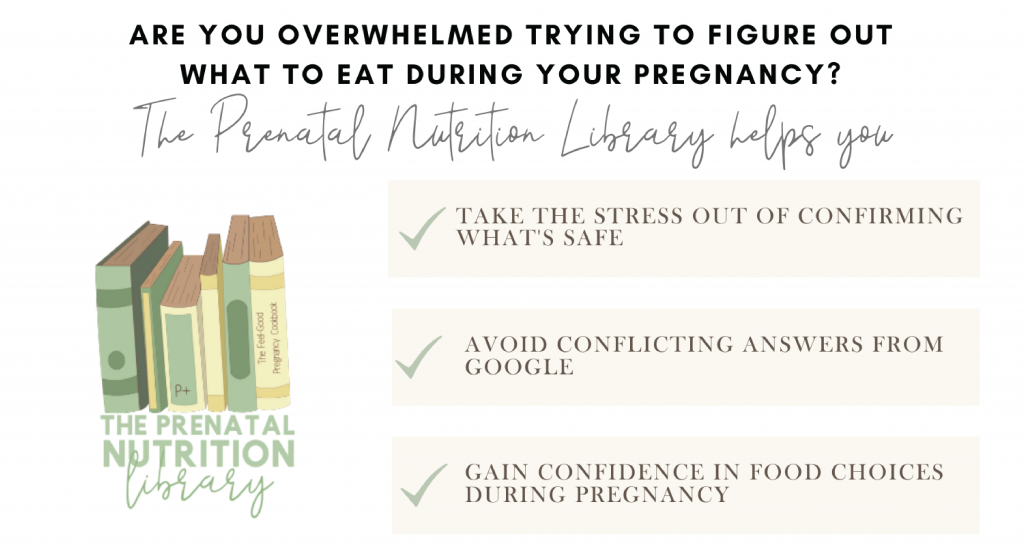How to Manage Morning Sickness
The key question I want to answer in this blog is, “how is baby getting enough nutrients if I am having so much nausea that I can barely keep any food down, not even one cracker.” Here is how to manage morning sickness.
This is a question that I get quite frequently which is understandable due to the emphasis many nutrition professionals (including myself) places on nutrition during pregnancy. Well, when we are unable to provide our bodies with nutrition, it is relying largely on nutrient stores, provided that we were adequately nourished prior to becoming pregnant. Our bodies are truly amazing! According to ACOG, nausea and vomiting does not usually harm the fetus, only in the most severe cases can it begin to alter the growth of baby. It is reassuring to think your body protects the health of your baby, but this is not a time to forget about good nutrition all together. It is still best to be mindful, understand what is happening is only temporary and that you and baby will overcome this!What about hyperemesis gravidarum?
This is severe nausea and vomiting that is often accompanied by weight loss, dehydration, and electrolyte imbalance. Most women will need to be hospitalized with this severe of nausea and vomiting. If you are vomiting non-stop, contact your health care provider.Have you heard nausea/vomiting is associated with positive pregnancy outcomes?
Yes, this is true. Researchers suspect this may be due to a few reasons. One, our bodies are protecting us from eating certain foods that may not benefit the baby or that may not be food safe. Two, we tend to eat a healthier, more nutrient-dense diet once nausea resolves which results in better pregnancies outcomes. Third, the periods of “fasting” may increase the availability and absorbability of some nutrients. If you aren’t experiencing nausea, don’t worry! This doesn’t mean you aren’t going to have a healthy pregnancy.How to manage morning sickness
1. Keep up with your prenatal vitamin regime.
Nausea is one of the reasons a prenatal vitamin is recommended. It serves as an insurance policy that you are getting the nutrients you need. Sometimes prenatal vitamins can contribute to the feeling of nausea if this is the case I recommend finding a new vitamin, maybe a powder or gummy? Check out my shop to see some of my recommended picks.2. Make sure you are sipping water throughout the day.
Adequate fluid intake during pregnancy is vitally important. Water is crucial. If you do end up vomiting, replenishing electrolytes is critical, too. My advice is to carry a large water bottle with you everywhere you go. Have you hopped on the Hydro Flask trend? I honestly just recently made the switch to this water bottle and I’m loving carrying it around everywhere I go.3. Aim to get protein in at breakfast.
Protein at breakfast gets your day off to a great start. This is especially important if your nausea doesn’t hit until later in the day and you are actually hungry in the morning. If you have actual “morning” sickness, try plain cashews or almonds when you first wake up. This is also a time when a lot of people opt for smoothies or protein shakes. Here is a protein powder I recommend. If you are an avid smoothie maker, I highly recommend including a source of protein and fat in every fruity blend.4. Eat whatever food you can keep down.
Most of the time this is plain carbs such as toast, chips, pretzels, or noodles. If the nausea is REALLY bad, just eat something then focus on proper nutrition when your appetite returns. One food choice does not and will not define your prenatal diet.Also, check out my blog on 10 tips to control morning sickness, if you are looking for more concrete steps to take to overcome nausea.
Morning sickness is COMMON and it will PASS. Hang in there and know you are doing all you can to protect your precious baby.
Written by Ryann Kipping, RDN, CLEC











You actually make it seem so easy along with your presentation but I in finding this topic to be actually one thing that I feel I’d by no means understand. It sort of feels too complicated and very extensive for me. I’m looking forward for your next put up, I¡¦ll attempt to get the grasp of it!
Hi there! I’ll make sure to keep this in mind for my next post. Please get in contact with me privately if you have more questions.